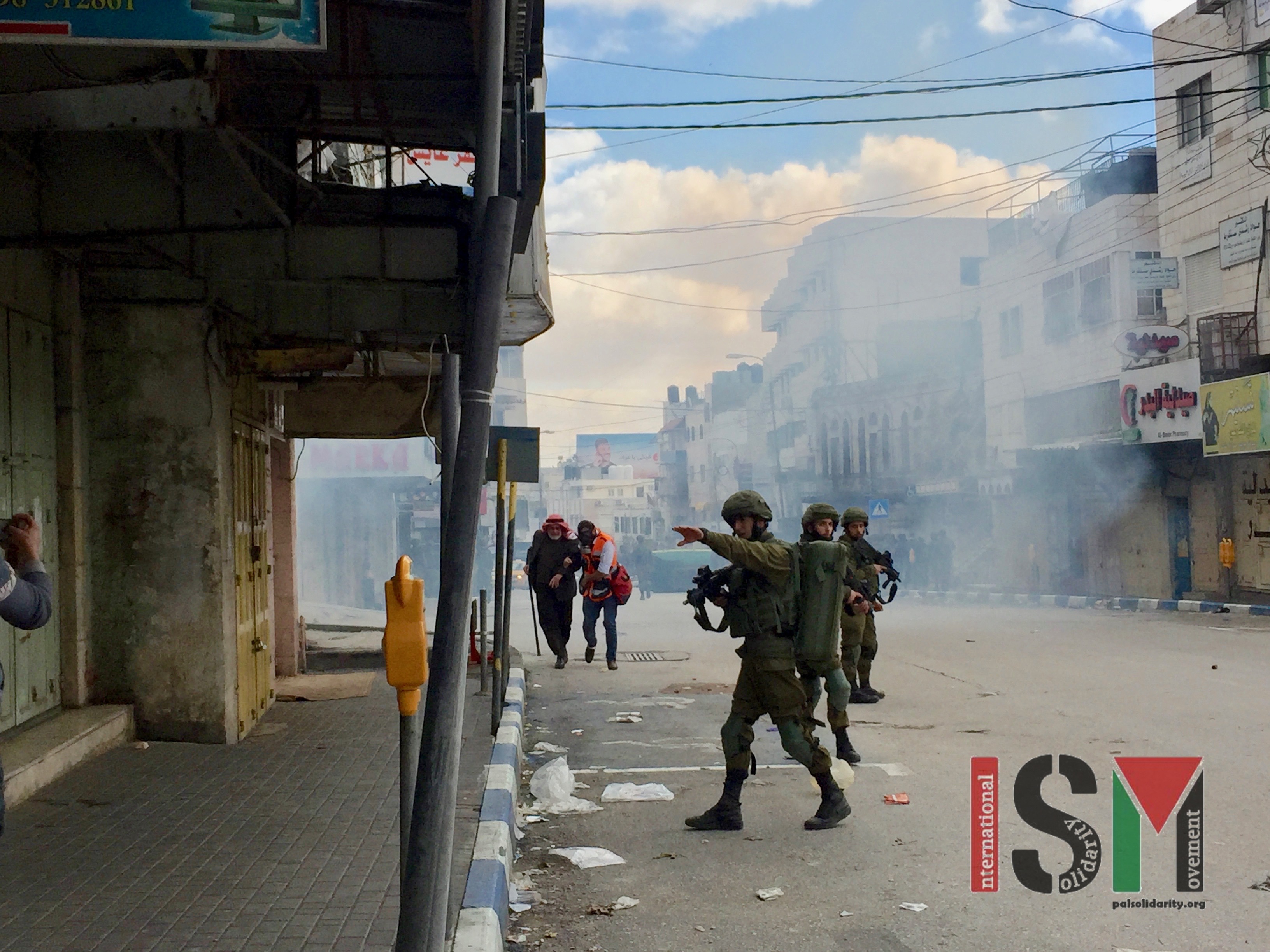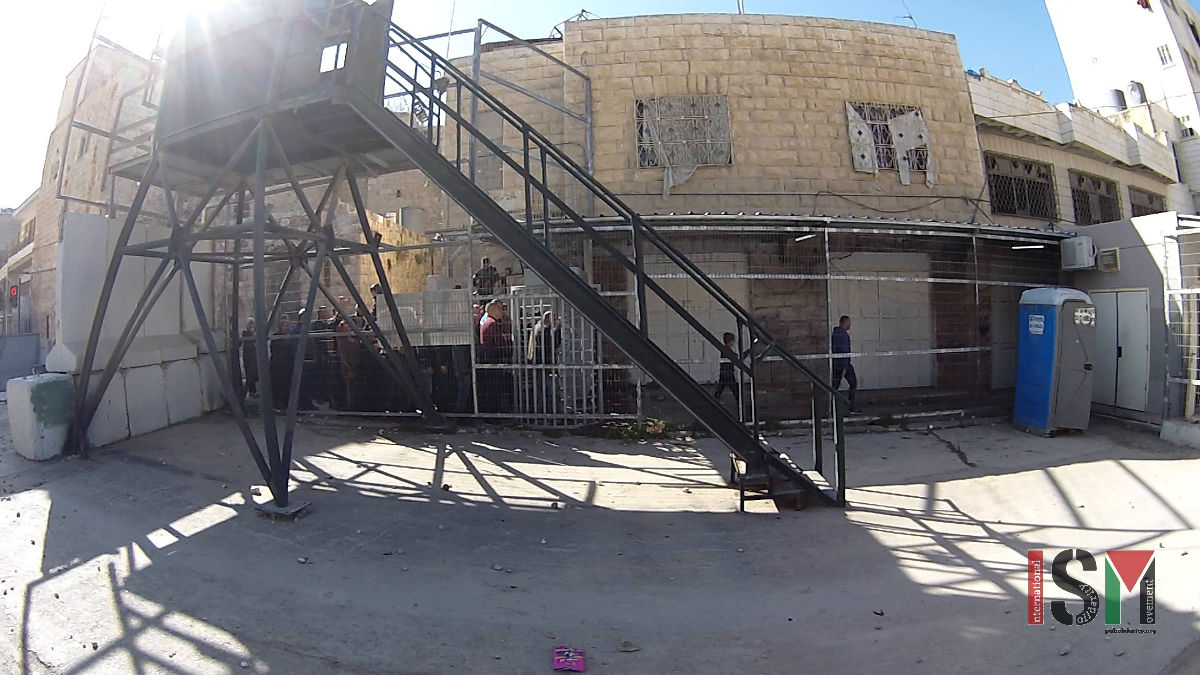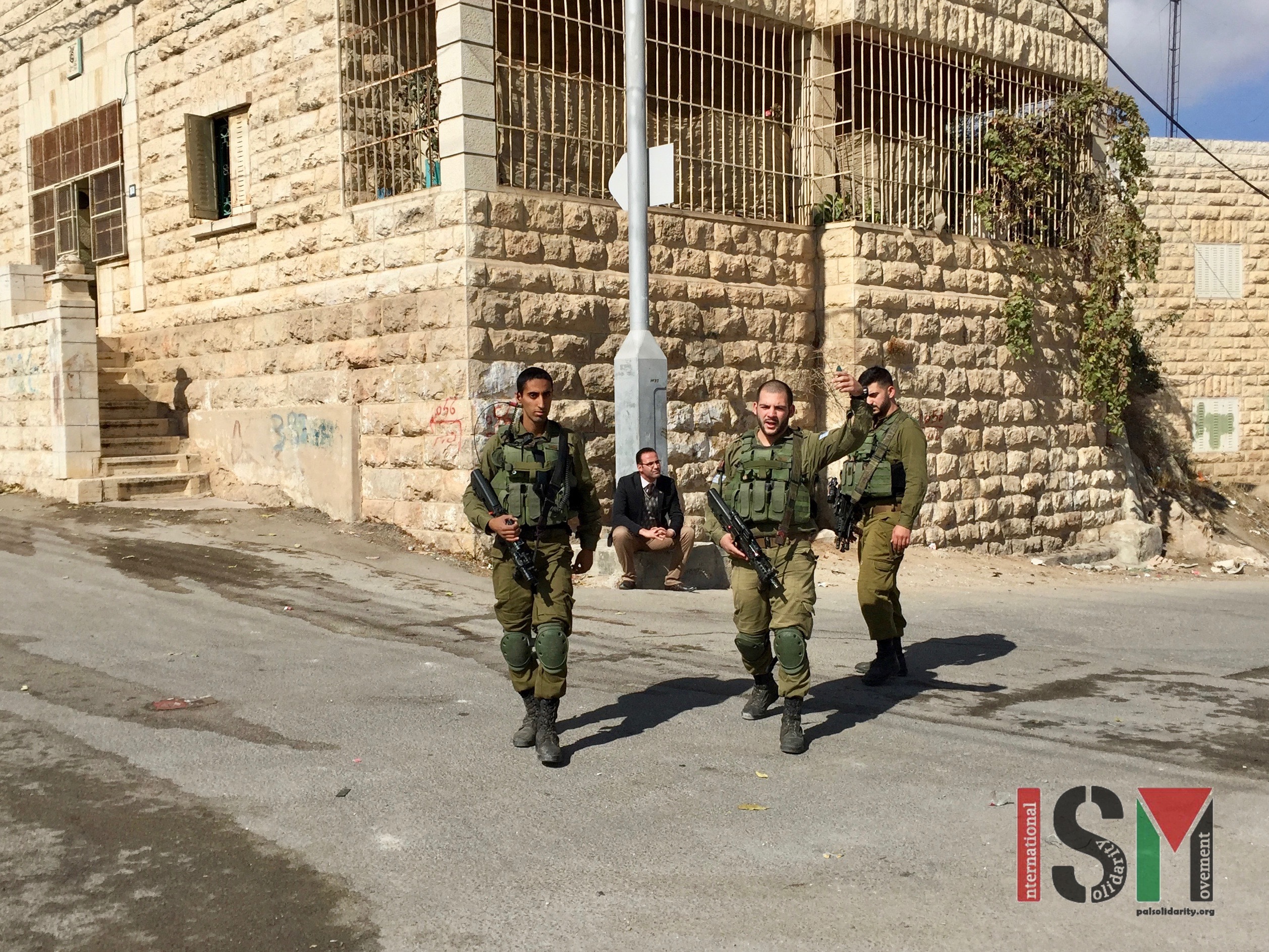Category: Hebron
-
Hundreds of Israeli Soldiers Violently Suppress Demonstration in Hebron
December 2017 | International Solidarity Movement, al-Khalil team | al-Khalil, Occupied Palestine In response to Donald Trump’s declaration of Jerusalem as the capital of Israel hundreds of heavily armed Israeli soldiers invaded the Palestinian controlled areas of Hebron to clash with demonstrators. The clashes were likely also fueled by a general strike of work and…
-
Arbitrary Delays Prevent Worshippers From Reaching Ibrahimi Mosque
3rd December 2017 | International Solidarity Movement, al-Khalil team | al-Khalil, Occupied Palestine On Friday the 1st of December, occupation forces at the Qeitun checkpoint blocked the way to the mosque for an extra long time, thereby delaying Palestinian families on their way to prayer in the Ibrahimi mosque. To reach the Ibrahimi mosque, Palestinians…
-
Settler holidays violently disrupting Palestinian every day life
10th November 2017 | International Solidarity Movement, al-Khalil team | Hebron, Occupied Palestine Yesterday in the Palestinian city Al-Khalil(Hebron) there was a large military presence in the area due to the coming Jewish holiday, The feast of Sarah. Solders from the Israeli military detained Palestinians, prevented children from getting to their schools, and shot rounds…



